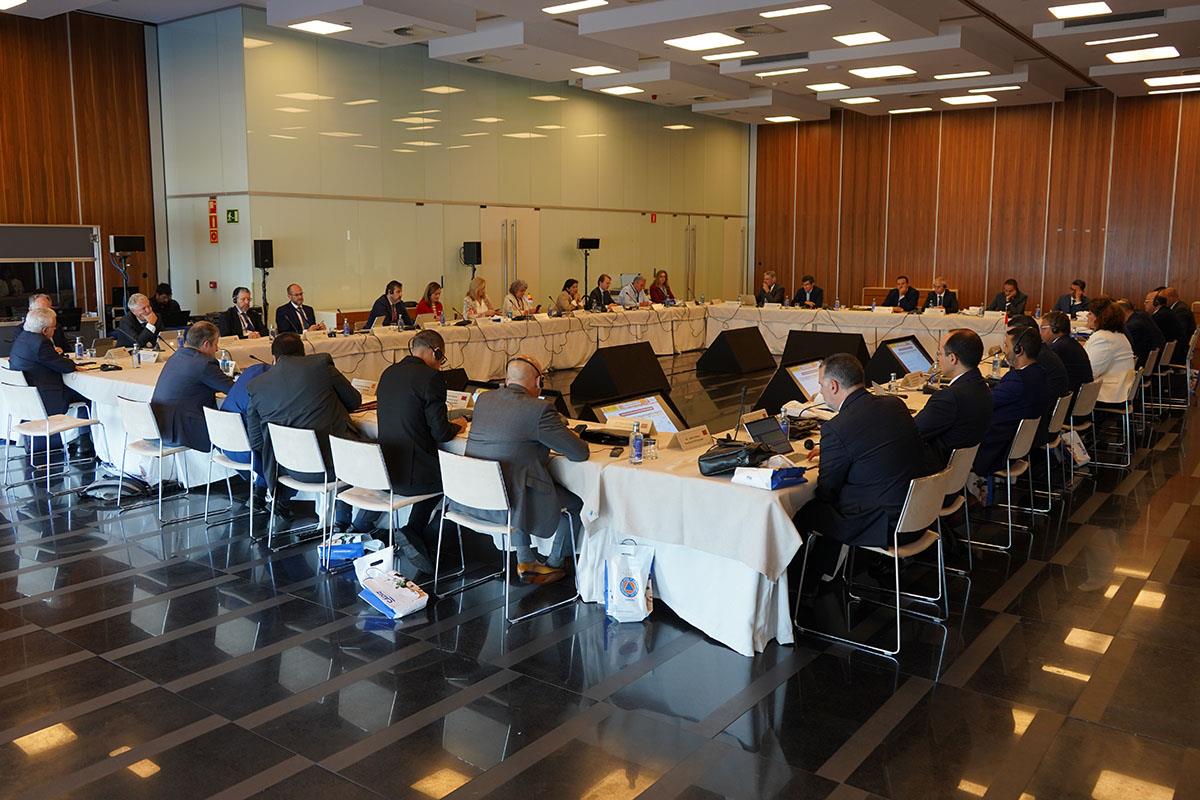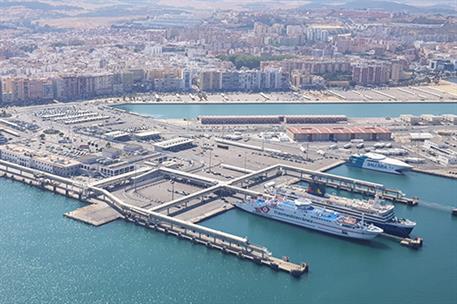Spain and Morocco expect an increase in the number of users of the Operation Crossing the Strait 2025
News - 2025.5.7
 Representatives of Morocco and Spain during the meeting
Representatives of Morocco and Spain during the meeting
The meeting served to coordinate the arrangements made by the two countries to manage the flow of movement between the two continents, which in the case of Spain is included in the Special Civil Protection Plan covering all the aspects necessary for the development of the operation the two countries are preparing.
This special plan has three main objectives: to assist Maghrebi citizens with whatever is necessary during their journey through Spain, to achieve fluid traffic on national roads, and to reduce waiting times at ports of embarkation.
To this end, the plan involves the participation of 20 bodies of the General State Administration, autonomous communities and local corporations, nine maritime ports (Melilla, Ceuta, Valencia, Algeciras, Almería, Motril, Málaga, Tarifa and Alicante) and more than 29,000 people from the state law enforcement forces and agencies, health personnel and Red Cross volunteers, social workers and translators.
At the meeting, the undersecretary of the Ministry of Home Affairs, Susana Crisóstomo, said that Operation Crossing the Strait "is an example of good coordination between neighbouring countries and of the great preparatory work of our technical teams", adding that the key to its success lies in "coordination between the two countries and permanent communication between our respective teams, which I know is ongoing and fluid".
Those attending the meeting forecast an increase of 5% in the number of vehicles that will travel through Spain this year within the framework of the OPE 2025 compared to the previous year, when 847,429 vehicles were registered, and 4% more passengers, which in 2024 totalled 3,442,770. Given this forecast, 12,012 transport vessel rotations are planned for this summer, 8.4% more than the previous year.
Largest device in Europe
Operation Crossing the Strait of Gibraltar has been in place since 1986 and manages the outward and return transit of North Africans travelling from several European countries to North Africa during the summer season. It is the largest such operation organised in Europe and one of the most important in the world.
This OPE 2025 will begin on 15 June, will be active until 15 September and, as in previous years, will include a first Departure Phase and a subsequent Return Phase.
Participating in the joint commission on the Spanish side, together with the Under-Secretary of the Ministry of Home Affairs, were the Director General of Civil Protection and Emergencies, Virginia Barcones; the Deputy Director General of Mobility and Technology of the Directorate General of Traffic, Francisco José Ruiz, and the Head of the Area of Citizen Safety and Operations of the Directorate General of Coordination and Studies, Miguel Ángel Barrado.
Also in attendance were the sub-delegate of the Government in Cádiz, Blanca Flores; the director general of the Merchant Navy of the Ministry of Transport and Sustainable Mobility, Ana Núñez; the director general of the Port Authority of Algeciras, José Luis Hormaechea; the deputy director general of Foreign Health of the Ministry of Health, Fernando Riesco, and the deputy director general for the Maghreb of the Ministry of Foreign Affairs, EU and Cooperation, Aleix Garau, among other authorities.
On the Moroccan side, the delegation was headed by the Director of Migration and Border Surveillance of Morocco, Khalid Zerouali, who was accompanied by officials from the Moroccan embassy in Spain, as well as senior officials from the Royal Gendarmerie and various ministries of the North African country.
The Director General of Civil Protection and Emergencies stressed that the objective of the OPE 2025 is to achieve maximum fluidity and efficiency in travel, emphasising the purchase of closed tickets with the aim of reducing the crowds of passengers and vehicles at the ports of embarkation.
"It is very important to arrive at the port of embarkation with the ticket closed and purchased as far in advance as possible", Barcones said, "as this is advantageous for all travellers, allowing passengers to access the embarkation points in an orderly, fluid manner and reducing waiting times".
Non official translation





